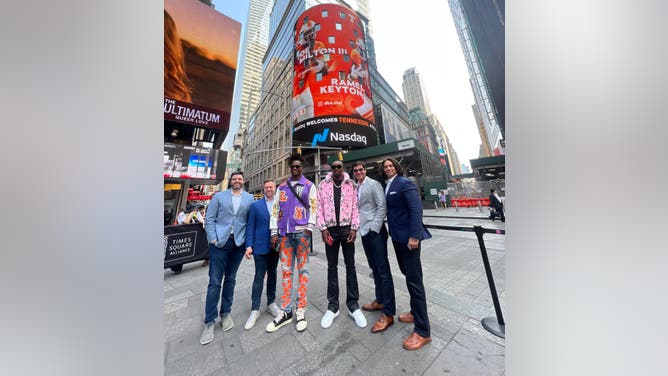NIL Goes To Washington: Nick Saban, SEC Commish, Collective Groups Head To Capitol Hill To Seek Federal Regulation
Nick Saban is headed to Washington, D.C. this week along with SEC Commissioner Greg Sankey and other college officials. The group will meet with lawmakers on Capitol Hill to discuss the ongoing Name, Image and Likeness dysfunction. Also, representatives of NIL Collectives from various colleges will attend a summit in hopes of raising awareness to Congress members.
As we've seen over the past two year, NIL has turned college recruiting into more of a pay-for-play system. What started as a way for student-athletes to profit off their names has now turned into a recruiting tactic used by schools across the country.
An SEC spokesperson tells OutKick that Sankey will be in Washington starting today.
One of the bigger problems we continue to see around college sports and NIL centers around how to control it. The current system has different states abiding by different rules, so officials are hoping to get Congress onboard to regulate the matter on a federal level.
"If it's going to be the same for everyone, I think that's better than what we have now," Nick Saban said last week at SEC meetings. "Because what we have now is we have some states and some schools in some states that are investing a lot more money in terms of managing their roster than others."
While Nick Saban has a point, many coaches around college football have noted that this has turned into NFL free agency. Right now, there's not much the NCAA can do to control it, so schools are taking advantage of the system that's in place.
"I have no problem (with players potentially becoming employees)," Nick Saban noted. "I mean, unionize it. Make it like the NFL."
What About Collectives, Where Do We Go From Here?
Two years ago, the word 'collective' was in its infancy stage of becoming the vocal point around college athletics. Now, it's all you hear about. On college campuses across the country, schools are using collectives to fund off-field recruiting. It's also legal for schools to vouch for collectives and work with them in terms of retaining players or bringing them aboard.
One former coach who has seen enough is Urban Meyer, who was a recent guest on OutKick show Don't @ Me With Dan Dakich. The former Ohio State and Florida head coach didn't hold back on what he views a collective to be.
"I'm not saying it's all that way, but from my understanding, it's a fancy word for cheating," Meyer told Dakich. "When I hear that word I kind of cringe right now and I hear the stories behind it that they're going to go to donors and boosters and ask for a lot of money, put it in a big pot, and then decide who gets that money based on ability level. Which, I think is 1A of the rule of NIL. You can't do that."
But there is an argument to be made that it's not the collectives who are to blame. In truth, the NCAA decided to make these collectives legal without many parameters, but now want to blame schools or groups for using the system.
Along with many different college football and basketball officials, collectives from Tennessee, Ole Miss, Georgia, Clemson and Washington will travel to Capitol Hill this week for a summit being hosted by the University of Arizona.
"Collectives have become one of the strongest proponents for the rights of student athletes, and now they come together as partners to help protect those rights and participate in fashioning a new, sustainable system for NIL," said Hunter Baddour, President of Tennessee's Spyre Sports Group. "Ultimately, we all want what's best for student athletes. We look forward to contributing to solution based conversations regarding NIL and the future of college athletics."
NIL Game Has To Change, Congress Would Have To Step In
The meetings this week in Washington are part of a full-fledged effort to find some type of solution for how NIL is handled in the future. Congress has been hesitant to jump into the game because of so many different laws that would have to be established. We're talking about making student-athletes employees of each school or at the very least putting up federal guardrails around NIL.
This is not going to be an easy task, with many obstacles standing in the way. But we have seen the positives that come from these collectives. Just last week, the Spyre Group took Tennessee QB Joe Milton and WR Ramen Keyton to New York City for a number of meetings with prospective clients.

Tennessee QB Joe Milton and WR Ramel Keyton went to New York City with the Spyre Group, a Tennessee based collective.
Not only did they meet with different companies, but they also appeared on numerous radio and television shows. This presented the players opportunities to increase their name value, which is an aspect of collectives that some folks forget.
In Washington, a number of college officials and coaches will meet with congress members to discuss the future. This list includes Greg Sankey, JT Daniels, Paul Finebaum, ACC Commissioner Jim Phillips, Oliver Luck and others.
Time will tell if members of Congress decide to dip their toes into the deep waters of NIL. But getting enough big names to Washington should send a message that things are headed in the wrong direction in college athletics.
Now, we wait to see if college officials can make enough noise to force federal legislation down the road.